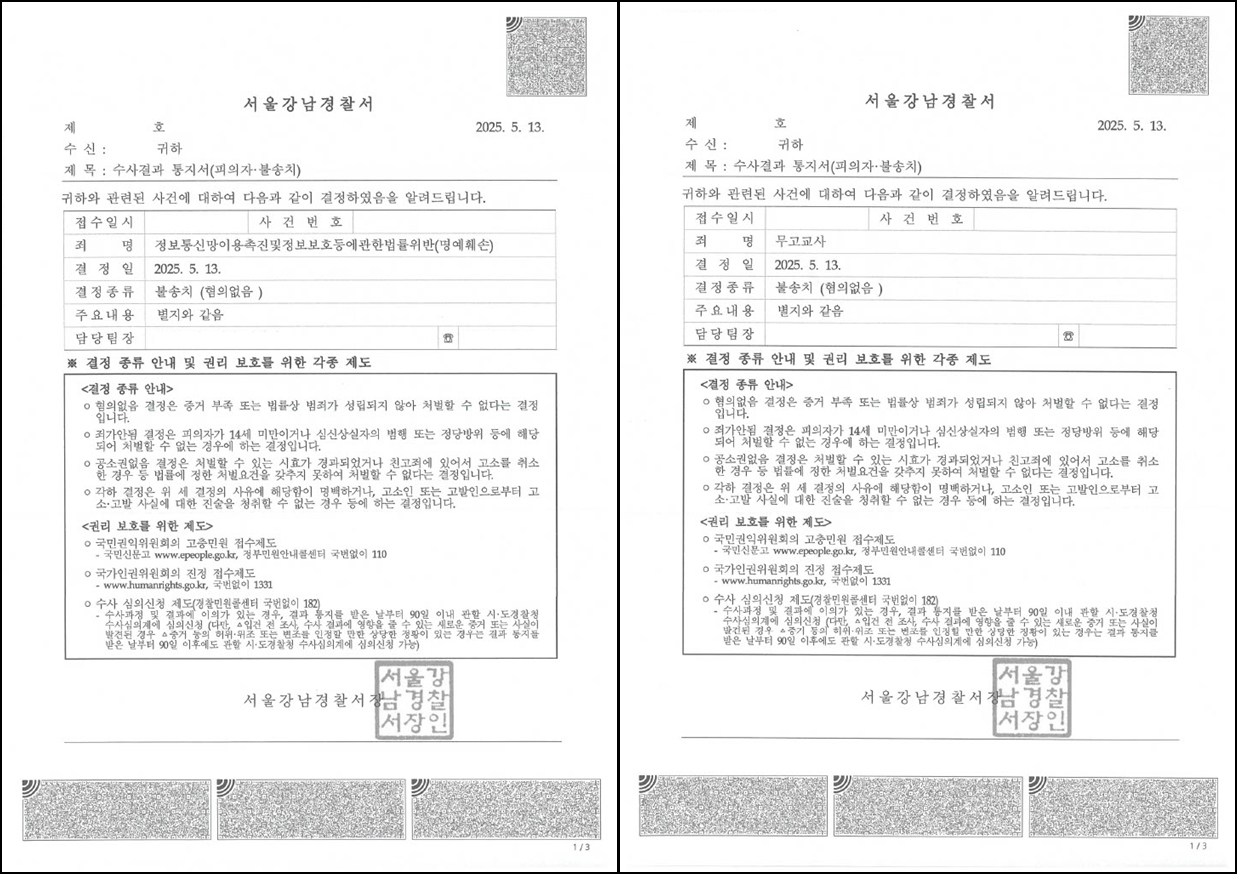Overview of the case (facts)
In a criminal case involving a celebrity, the client was accused of false imprisonment and defamation for his involvement in the criminal prosecution of the other party.
Even though our client provided simple legal assistance to the complainant in the process of legal counseling, drafting the complaint, and reporting to the media, the other party claimed intentional dissemination of falsehoods and inducing the commission of a crime, and sought severe criminal liability.
In the midst of confusing statements from officials, voluminous transcripts of conversations and media reports, you came to Ongang with a cry of injustice.
Case Issues (Case Features)
The key issues were that the client was merely providing legal advice and fact-finding assistance, and the opposing party alleged intent to induce innocent settlement and defamation.
Assistance from Ongang
1. analyze the key evidence and legal issues in the case
From the outset of the investigation, Onkang's defense attorneys pored over the case's vast trove of texts, transcripts, medical records, and media articles.
- The complainant had already decided to file a lawsuit on his own for several months, and proved that there were many circumstances (KakaoTalk calls) and procedures for checking and approving the contents of the complaint.
- Emphasized that the client was merely providing fact-finding and legal advice in preparing and filing the complaint, and that there were no circumstances that led to the misrepresentation or decision to commit the offense.
- As for the defamation part, we proved that the media reports were all about objective facts and public interest, and provided detailed Supreme Court precedents that expressions such as "I have a personal relationship" cannot diminish social value.
- In fact, the client was not involved in the writing or editing of the media article, and the independent judgment of the journalist was supported by various sources and case law.
2. legal arguments and affirmative defenses
- We cited the Supreme Court precedent that the requirements for establishing teacher criminality (inducing and intending to commit the crime) are not met, and that mere assistance and legal counseling are not sufficient to establish innocent teacher criminality.
- As for defamation, we filed specific rebuttal briefs on all issues, including truthfulness, publicity, lack of libelous purpose, and lack of possible infringement of social value.
3. organize your objective evidence
- By systematically categorizing and organizing a vast amount of evidence such as KakaoTalk, transcripts, medical records, and various articles, we eliminated the possibility of distorting the facts.
- We also submitted separate supporting documents that refute the other party's intentional concealment, misrepresentation, etc.
■ Result
The investigative agency accepted Onkang's legal plea, objective evidence, and case citations, and issued 'no charges' for both the Innocent Teacher and Information and Communication Network Act (defamation).
Case outcome materials




